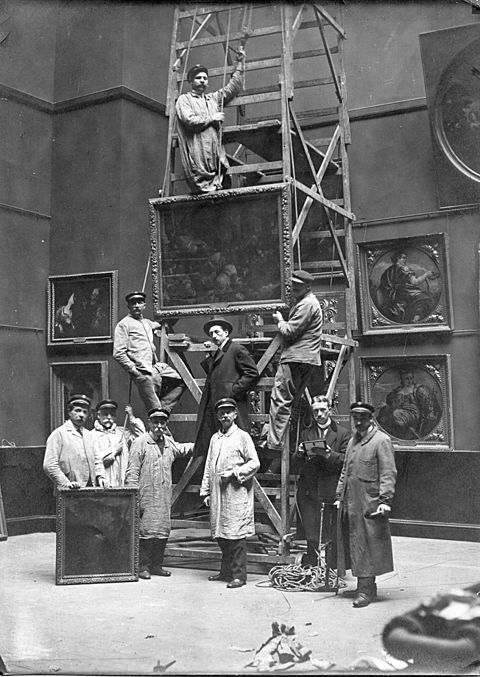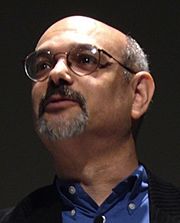Curator facts for kids
A Curator (from Latin: curare, meaning "to take care") is a manager or overseer. Traditionally, a curator or keeper of a cultural heritage institution (e.g., gallery, museum, library, or archive) is a content specialist charged with an institution's collections and involved with the interpretation of heritage material.
A traditional curator's concern necessarily involves tangible objects of some sort—artwork, collectibles, historic items, or scientific collections. More recently, new kinds of curators have started to emerge: curators of digital data objects and biocurators. The word curator comes from the Latin word curare, meaning to look after.
Contents
Curator responsibilities
In smaller organizations, a curator may have sole responsibility for acquisitions and even collections care. The curator makes decisions regarding what objects to select, oversees their potential and documentation, conducts research based on the collection and history, provides proper packaging of art for transportation, and shares that research with the public and community through exhibitions and publications. In very small, volunteer-based museums such as local historical societies, a curator may be the only paid staff member.
In larger institutions, the curator's primary function is that of a subject specialist, with the expectation that he or she will conduct original research on objects and guide the organization in its collecting. Such institutions can have multiple curators, each assigned to a specific collecting area (e.g., curator of ancient art, curator of prints and drawings, etc.) and often operating under the direction of a head curator. In such organizations, the physical care of the collection may be overseen by museum collections managers or museum conservators, and documentation and administrative matters (such as personnel, insurance, and loans) are handled by a museum registrar.
Education and training
Curators hold a high academic degree in their subject, typically a Doctor of Philosophy or a master's degree in subjects such as history, history of art, art, archaeology, anthropology, or classics. Curators are also expected to have contributed to their academic field, for example, by delivering public talks, publishing articles, or presenting at specialist academic conferences. It is important that curators have knowledge of the current collecting market for their area of expertise, and are aware of current ethical practices and laws that may impact their organisation's collecting.
Technology and society
In the same way that a museum curator may acquire objects of relevance or an art curator may select or interpret a work of art, the injection of technology and impact of social media into every aspect of society has seen the emergence of technology curators. These are people who are able to disentangle the science and logic of a particular technology and apply it to real world situations and society, whether for social change or commercial advantage.
Images for kids
See also
 In Spanish: Conservador de museo para niños
In Spanish: Conservador de museo para niños




